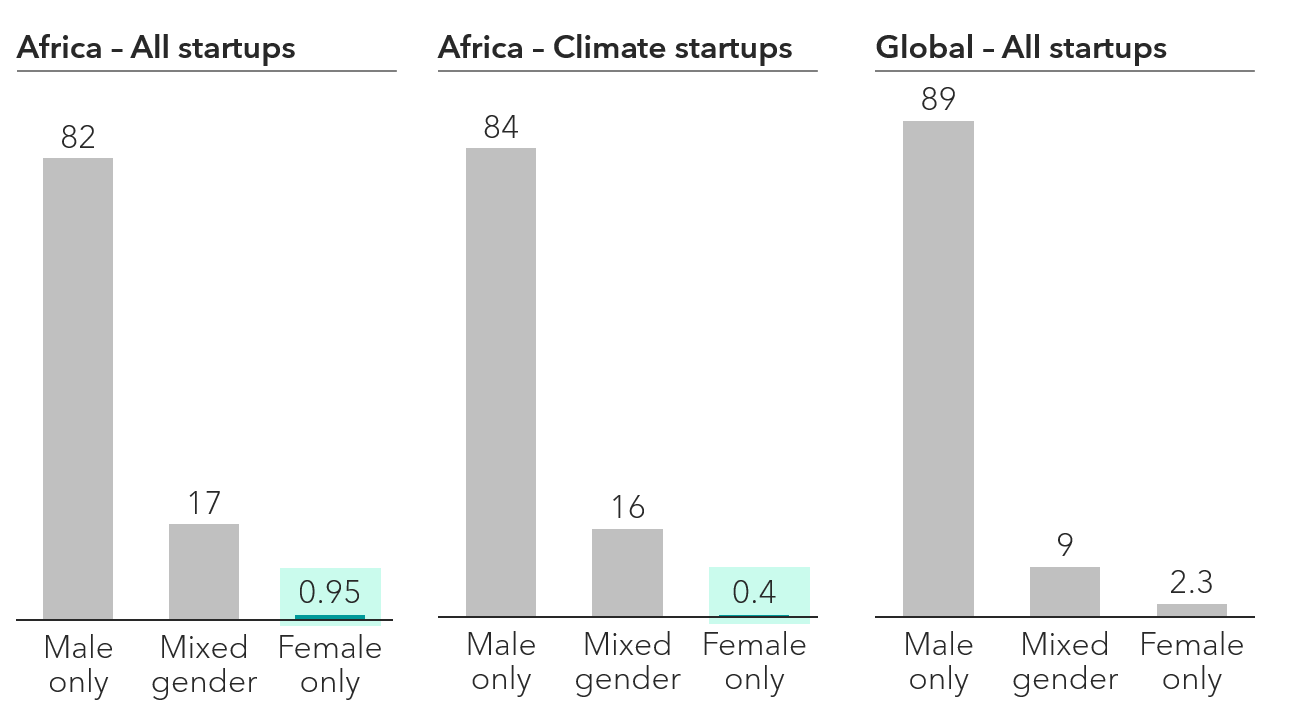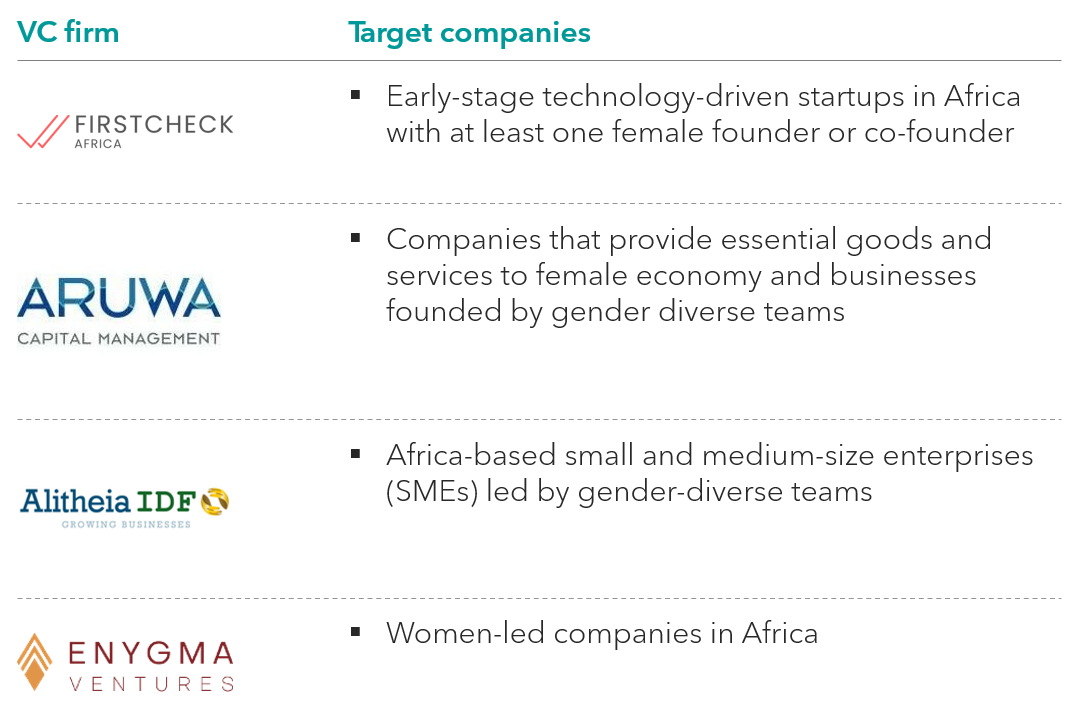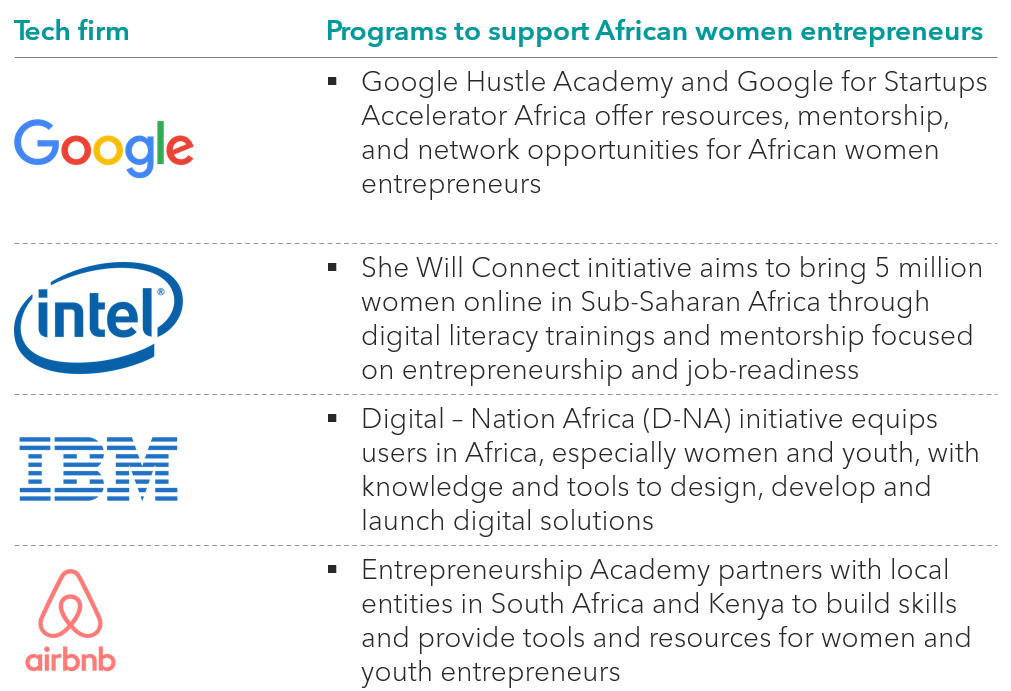
Copyright © 2023 Telesto Strategy LLC, All rights reserved.
By Alex Kruzel & Ben Vatterott
Though climate policy leaders tend to focus on reducing current emissions – such as deploying solar across North America and Europe – much work remains to be done in bringing both new and existing solutions to contexts outside the Global North. Nowhere is this more true than Africa, which by 2050 will have twice the population (2 billion people) and ten times the GDP ($27 trillion) compared to today. Ensuring that this growth occurs along a sustainable pathway will require significant innovation by climate startups.
Regrettably, women are all but excluded from this effort.
Low rates of tech startup leadership by women is not unique to Africa. Globally, only 15% of tech startup founders are women. Though far from parity, Sub-Sarahan Africa actually does slightly better than some regions of the world on this measure: 14.0% of African founders are female as compared to 12.6% in Europe and just 10.1% in the Middle East and North Africa.
The picture darkens considerably, however, when looking not just at which companies are headed by women, but where investment is flowing. In 2020, only 2.3% of global VC investments went to startups with female-only founders. In Africa, that figure was 0.95%, and attained an even lower 0.4% of VC funding for female-run African climate startups.
Share of venture capital funding going to startup by founding team
(% of total funds)

SOURCE: Telesto Strategy research; Crunchbase data; the Big Deal
Not only is it imperative that all stakeholders – including women – are empowered to address climate change, but investors are also foregoing significant returns by overlooking women founders. Women-led startups are more likely to be successful and generate higher ROI – a BCG study found that women-led startups deliver more than twice as much per dollar invested relative to startups led by men. Such startups are also more likely to hire more women and drive female participation in the workforce.
Closing the yawning gap between men and women in climate startups will require interventions across the funnel. Our firm supports this effort through our Climate Capital Entrepreneurship Accelerator program which supports pre-seed African climate entrepreneurs in refining their business plans and connects them with potential funders. We are proud to have more than 50% women in our initial cohort.
Several VCs players are helping build a pipeline for more African women entrepreneurs

SOURCE: Telesto Strategy research
We are not alone in this effort. Several African venture capital firms are dedicated to identifying, funding, and supporting female founders in Africa. American tech firms are also establishing various programs to train and mentor women entrepreneurs. While these efforts are applaudable, significantly more work will be needed to create gender parity in the ecosystem.
Eliminating emissions across all facets of the global economy cannot occur with half the world excluded. Women leadership in Africa’s climate innovation is necessary to ensure that the continent charts a new and sustainable path of economic development. All stakeholders – including venture capital, big tech, and firms like Telesto – have a role to play.
Various US companies, including Big tech, are also supporting African women entrepreneurs through various programs

SOURCE: Telesto Strategy research
